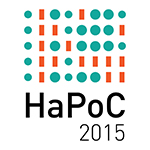It is commonly accepted that computability theory, as a theory of computable functions, emerged as a consequence of Gödel's incompleteness famous results of 1931. Computing theory thus appears as naturally diverging from the logical perspective and the philosophy the logicist and set-theoretical tradition of Frege, Russel or Carnap. However, if closer attention is payed to his entire work, Frege's approach to logic and formal systems proves to be closer in some essential respects to the computational approach than to the logicist tradition. Out of a detailed study of Frege's understudied Habilitationsschrift, we'll show how an original functional approach to magnitudes, in which recursion appears as the schema informing functional equations determining quantitative domains, gives Frege the formal basis for the definition of a general concept of number independent from intuition. We'll show that this particular approach to the general concept of number underlies Frege's entire logical undertaking, informing, in particular Frege's introduction of the propositional function as well as the logical system built around it, which only incidentally can be associated with a set-theoretical conception. Such a perspective will allow to consider Frege as a strong and insightful pioneer of the logical and philosophical stakes associated to the tradition of computing sciences.
- Presentation
- Other

 PDF version
PDF version
